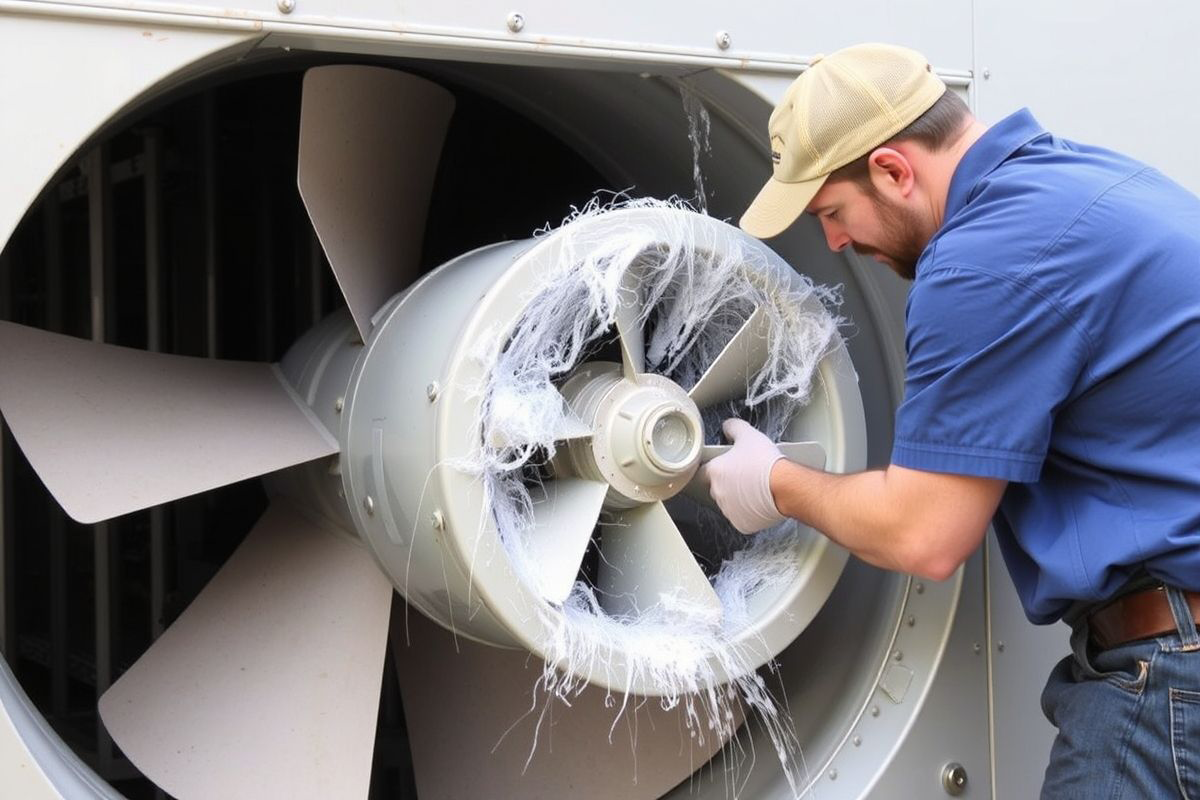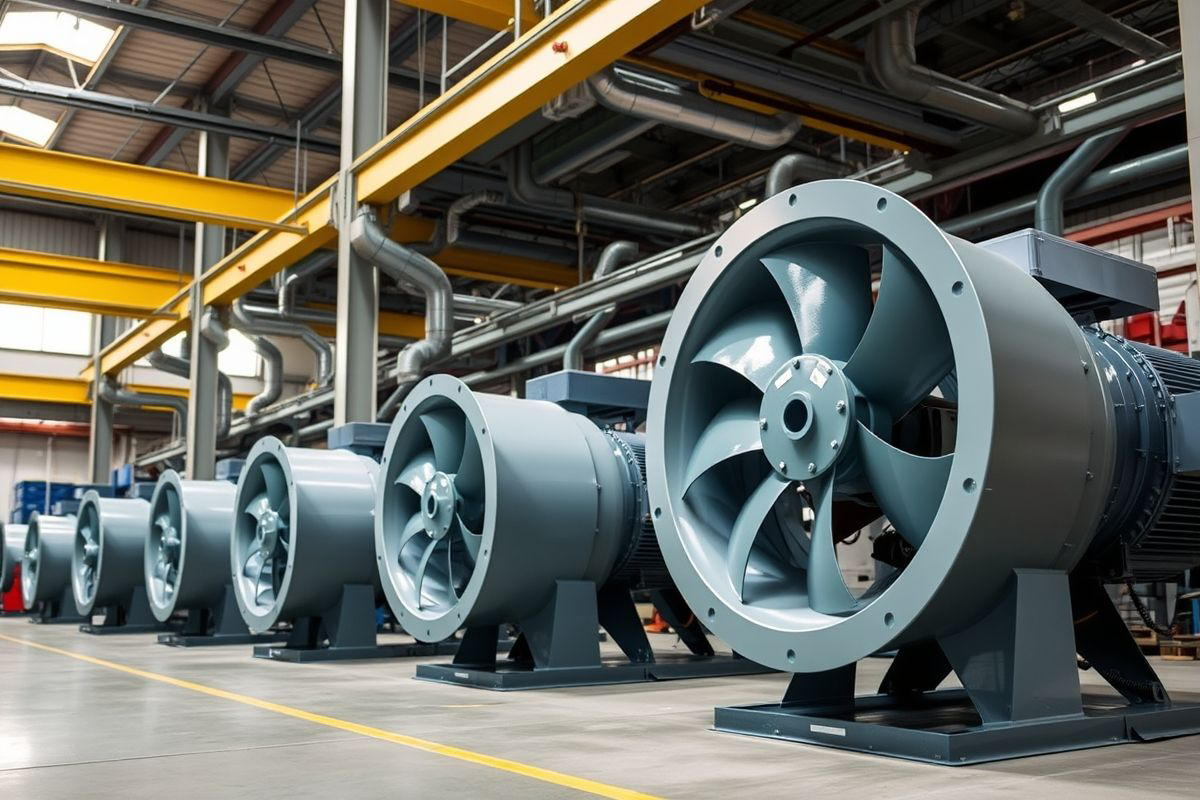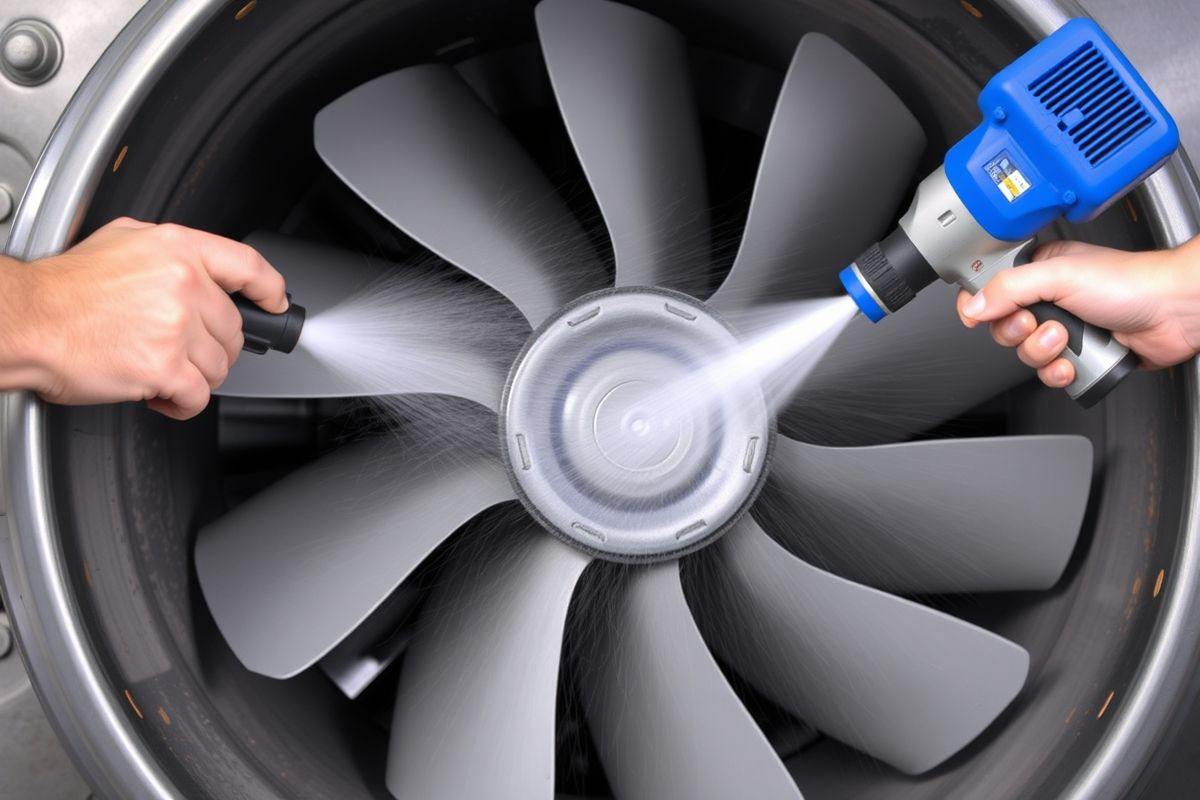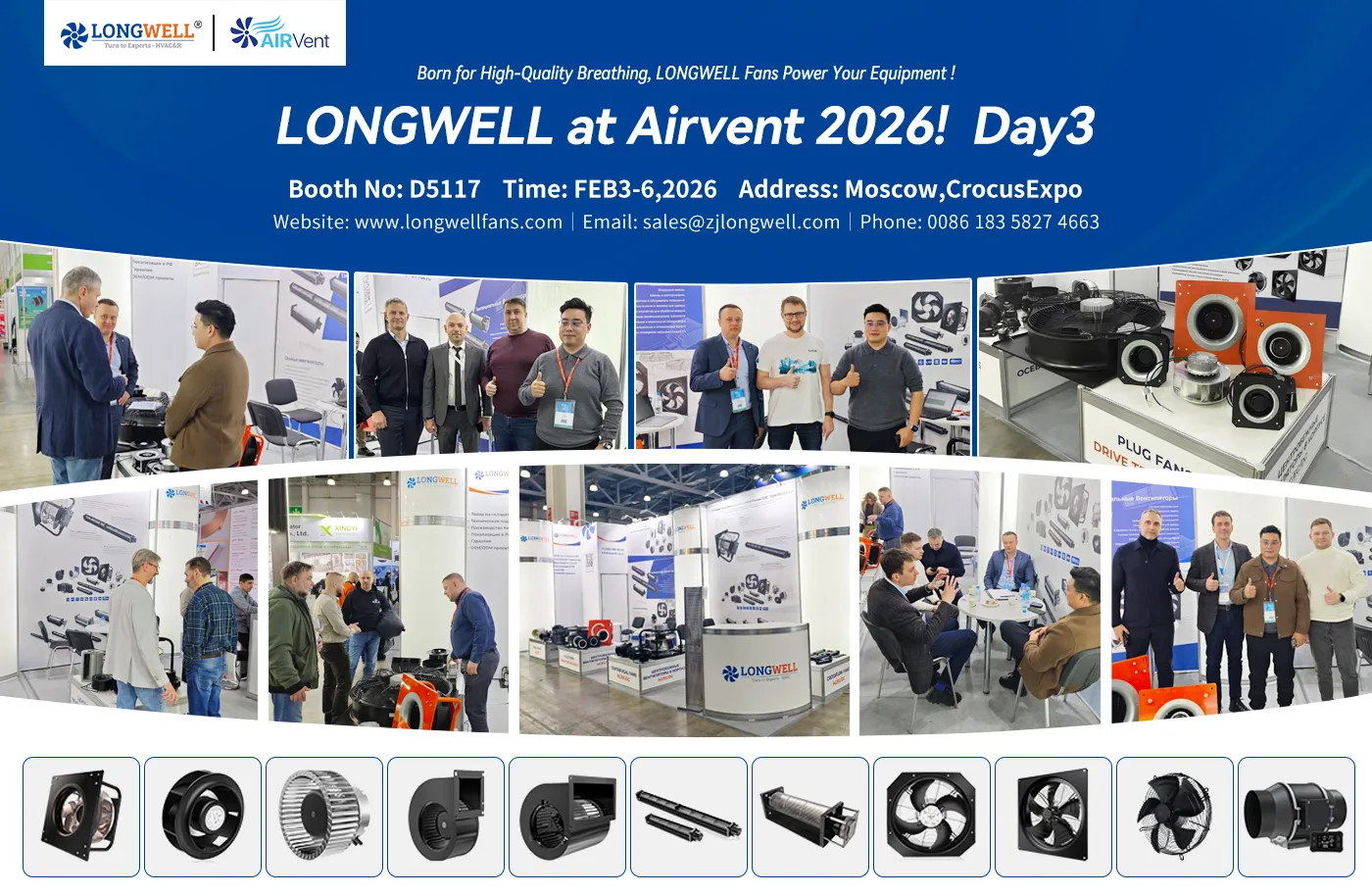
Introduction
Industrial blowers are important for many jobs. They create the airflow needed for ventilation, cooling, and other vital tasks. A steady airflow is crucial for several industrial processes, and blower fans help achieve this. You can increase the lifespan of your industrial blowers by following smart steps and best practices. This way, you will improve their performance and get the most out of your investment.
Importance of Blower Fans

Blower fans are really important in many businesses and factories. They help keep the air moving well. These fans create a safe and comfortable space. They provide fresh air for ventilation systems and support industrial tasks that need good airflow.
Good airflow is important for many reasons. In factories, it helps keep the temperature steady. It also takes away harmful gases and dirt. This prevents dangerous substances from collecting. In offices and commercial buildings, good ventilation makes the indoor space comfortable and healthy for everyone.
Blower fans improve productivity. They achieve this by providing the right air flow. When air flow is better, air quality gets improved. A better air quality makes the work environment safer.
Objective of the Blog
This blog will give you useful tips and ideas to help your blower fans last longer. We will talk about things like regular maintenance and some advanced techniques. This will help you make better choices about your blower fan systems.
We will explore why it is important to follow manufacturer guidelines. We will see how operating conditions can impact performance. We will also discuss steps to prevent early failures. By using these best practices, you can keep your blower fans running smoothly and help them last longer.
In this blog, we will discuss why it’s essential to take care of your blower fan regularly. Keeping up with its maintenance can help you lower downtime, save money, and make sure your airflow system works properly and dependably.
Cleaning and Maintenance

Regular maintenance is important for your blower fans to work well and last a long time. A good maintenance plan should include cleaning, lubrication, and checking all parts. If you do not maintain them often, dust and debris can build up. This will lower airflow and make the fan motor work harder.
Start by making a regular cleaning schedule for your blower fans. How often you clean them depends on where you use the fan and its type. Check and change the air filters often. This keeps the airflow strong. A dirty air filter can block air. This makes the fan work harder, which could cause issues and shorten its lifespan.
Environmental and Operational Considerations
The location where a blower fan operates greatly affects how long it lasts. If it is in hot areas, high humidity, or exposed to harmful substances, it can wear out quickly. To reduce these risks, you can apply protective coatings, use good enclosures, and ensure proper ventilation.
How you use the fan is very important. The time it runs and the weight it carries matters. If you put too much weight on the fan or run it on full power all the time, it can get very hot and break faster than you expect. By balancing the weight and having regular maintenance, you can help your blower fans last longer.
Regular Cleaning and Dust Removal Techniques
Regular cleaning is very important. It helps get rid of dust, dirt, and other stuff that can build up on blower parts. This includes the fan wheel, housing, and ductwork.
Here are some good cleaning methods:
- Turn off the power supply: Always switch off the power before cleaning the blower fan. This will help prevent any accidents.
- Check and clean the fan wheel: Carefully remove dirt from the fan wheel blades. A soft brush or compressed air is good to keep the blades safe.
- Clean the housing and ductwork: Use a vacuum or compressed air to remove dust and debris from the fan housing and ductwork.
Cleaning helps airflow and keeps the ventilation system better. It reduces stress on the motor. Plus, it stops contaminants from spreading around the system.
Lubrication: Types and Application Frequency
Proper lubrication is important. It helps reduce friction. This also lowers the wear on moving parts, such as bearings, shafts, and motors.
The type of lubricant you need will depend on the kind of fan, how it runs, and what the manufacturer recommends.
| Lubricant Type | Applications |
|---|---|
| Grease | Bearings, shafts |
| Oil | Motors, high-speed bearings |
| Dry Lubricants | High-temperature applications, where liquid lubricants are unsuitable |
Follow the manufacturer’s instructions for when and how to lubricate. Using too much lubrication can be bad. It can bring in dirt and debris. So, it is important to follow the advice given.
Lubrication and Parts Management
Taking care of blower fans means looking after lubrication and parts. This is key for the fan’s performance and its lifespan. Lubrication should be done often to lower friction. This helps to lessen wear and tear on moving parts, such as bearings and shafts.
Good parts management means doing regular inspections. These checks help you notice any signs of wear. By finding problems early, you can change parts before they break. Keeping some important spare parts in stock can reduce downtime. This way, your blower can keep running without any interruptions.
Proper Lubrication
Proper lubrication is important for a smooth operation. It helps reduce friction and makes your blower fans last longer. For bearings, it’s essential to use the right amount and type of grease. Using too much grease can attract dirt and make things harder to clean. However, not using enough grease can lead to wear and tear on the parts.
For shafts and moving parts, read the instructions from the manufacturer. They tell you which lubricant to use and how to apply it. You should lubricate regularly, but how often will depend on how you use the fan and the environment it works in.
Proper lubrication is important for the performance of your blower fans. It helps lower energy consumption and can stop expensive repairs or replacements due to problems caused by friction. By following a regular lubrication routine, you can enhance how well your fans work and make them last longer.
Parts Replacement
Regular inspections are important. They help you spot signs of wear on the blower. Look for worn-out belts, damaged bearings, and any signs of corrosion.
Changing old parts fast is key to preventing big issues and making your equipment last longer. Ignoring these signs can cause more damage. It will waste your time and reduce how well things work.
Make a maintenance schedule to stop problems. This plan should have regular inspections of all important parts. If you take care of these issues early, you can avoid sudden breakdowns. This way helps keep your blower fans working well.
Performance Optimization
Optimizing your blower fans goes beyond just regular maintenance. You need to look at the whole situation, which means choosing the right fan and designing the system properly. It’s important to understand how it works too. Switching to energy-efficient axial fans or updating to variable frequency drives can lower your energy costs and improve airflow.
Looking closely at the flow of air in your system can help you find ways to make it better. Changing how the ductwork is set up, reducing sharp bends, and adjusting the angles of the fan blades can decrease pressure drops. This change will make your system more efficient. Better airflow can lower energy use and improve the performance of your blower fans.
Monitoring and Technology Integration
In today’s tech-driven world, monitoring systems and smart technology can improve how well your blower fans work and help them last longer. By using sensors to measure temperature, vibration, and airflow, you can learn key information about how your fans run. This system allows you to spot issues before they turn into bigger problems.
You should think about using building automation systems for HVAC systems and centrifugal fans. These systems adjust the speed of the fans based on what is needed at the moment. They help save energy, improve indoor air quality, and can also make your blower fans last longer.
Conclusion
In conclusion, if you run your blower fan for a long time, you need to clean it regularly. Proper lubrication is also important, and you should change parts when necessary. Be aware of environmental factors to help it perform better. Using technology to watch over the fan can make it work better and last longer. Stay on top of maintenance to avoid problems. A well-maintained fan not only performs well but can save you money over time. If you have more questions or need help, check our FAQs or contact our experts for advice.
Frequently Asked Questions
How often should blower fans be serviced?
Regular maintenance of industrial fans is very important. Check the manufacturer guidelines for the specific times for service. These times may change depending on the fan type and how it works. Following the recommended maintenance schedule will keep the fan reliable and help it last longer.
Can upgrading components extend a blower fan’s life?
Upgrading parts like better materials or energy-saving motors can make a blower fan last longer. These improvements can help it work better. They also boost efficiency and lower wear.
What are the signs of a failing blower fan?
Signs that your blower fan might be failing are strange sounds, strong vibrations, less airflow, and overheating. It’s important to address these problems quickly. Checking and taking care of your fan can help avoid more damage.
Is it cost-effective to repair an old blower fan or replace it?
When deciding to fix or replace an old blower fan, think about the costs and how long it will last. You should look at repair costs, efficiency loss, and how easy it is to find parts. Often, it may be cheaper to simply replace the blower fan.
How can I reduce noise levels from my blower fan?
To make less noise, you should think about using acoustic insulation materials around the fan housing or ductwork. It’s also helpful to check and balance the fan regularly. This can lower vibrations and sound levels. A quieter operation will feel more comfortable.


